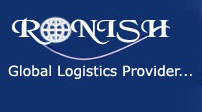
Lekki Deep Sea Port in Lagos, Nigeria, is no longer a “project to watch”—it is a fully operational, smart mega-hub reshaping supply chain maps across Africa, Europe, the Middle East, and the Americas.
Purpose-built with a natural channel depth of 16.5 m, a greenfield Free Zone backdrop, and direct motorway & rail corridors, Lekki Deep Sea Port sets the gold standard for efficiency, vessel size accommodation, and end‑to‑end digital visibility.
Strategic Advantages You Can Monetise
Proven Operational Performance
- In the first 12 months of commercial operation, the port handled 77 vessels, 100,000 containers, and 22,447 trans‑shipment moves—all with < 48 h average dwell time.
- Nigeria’s first LNG‑powered container ship called here, validating its forward‑looking, green‑port infrastructure.
- A Maersk‑backed Logistics Technology Hub is integrating AI berth‑window planning, OCR gate automation, and blockchain bill‑of‑lading pilots.
Infrastructure at a Glance
- Quay length: 1,200 m (3 Post‑Panamax berths + future liquid bulk jetty)
- Draft: 16.5 m channel / 18.0 m turning basin
- Equipment: 6 × Super‑Post‑Panamax STS cranes, 18 × RTGs, reefer plugs > 1,000
- Intermodal: 6‑lane Lekki–Epe Expressway, 45‑km heavy‑haul rail, on‑dock truck staging
- Ancillary Services: Ship chandling, fresh water, bunker, Class societies, P&I clubs onsite
Why Global Brands Are Signing MOUs Now
- FMCG & Retail – Reduce stock‑outs by consolidating West & Central African distribution in Lagos.
- Automotive – CKD kits clear in < 72 h; Free Zone assembly attracts 0 % import duty.
- Agro‑exporters – Reefer corridor plus priority phytosanitary desks speed up perishables.
- Energy Majors – Dedicated liquid bulk berth (Phase 2) eases white‑product import blending.
- E‑commerce 3PLs – Same‑day pick‑and‑pack from adjacent 100‑ha logistics park.
Sustainability & Compliance
Lekki Deep Sea Port aligns with IMO 2030 emissions targets through shore‑power readiness, LNG bunkering options and an upcoming solar micro‑grid that will offset 25 % of terminal energy demand. ISPS Code, ISO 9001/14001 and AEO certifications ensure top‑tier security and governance standards—another tick for ESG‑minded cargo owners.
How to Engage With Lekki Deep Sea Port Today
- Book a Berth Window – Email schedules@lekkiport.com with your proforma rotation.
- Reserve Free Zone Space – Submit LOIs via the Lagos Free Zone single‑window portal.
- Arrange a Site Tour – Virtual and in‑person tours available weekly.
- Partner on Value‑Added Services – Join the growing ecosystem of cold‑chain, haulage and fintech providers.
5 Need a Local Port Agent? – Ronish Nigeria Limited provides full-service ship agency and port agency support at Lekki Deep Sea Port, ensuring smooth vessel turnaround, crew change facilitation, and port call coordination.
Ready to future‑proof your logistics?
Reach out today and experience the Lekki Deep Sea Port advantage.
Conclusion: Your Competitive Edge Begins Here
With its deep draft, expansion headroom and digitally enabled ecosystem, Lekki Deep Sea Port offers a rare first‑mover opportunity in a market poised to reach 5.5 M TEU demand by 2025. Whether you’re a main‑line operator seeking reliable West African calls, an importer tired of congestion surcharges, or an exporter chasing speed‑to‑market, the port delivers the capacity, efficiency and transparency your global supply chain needs.
